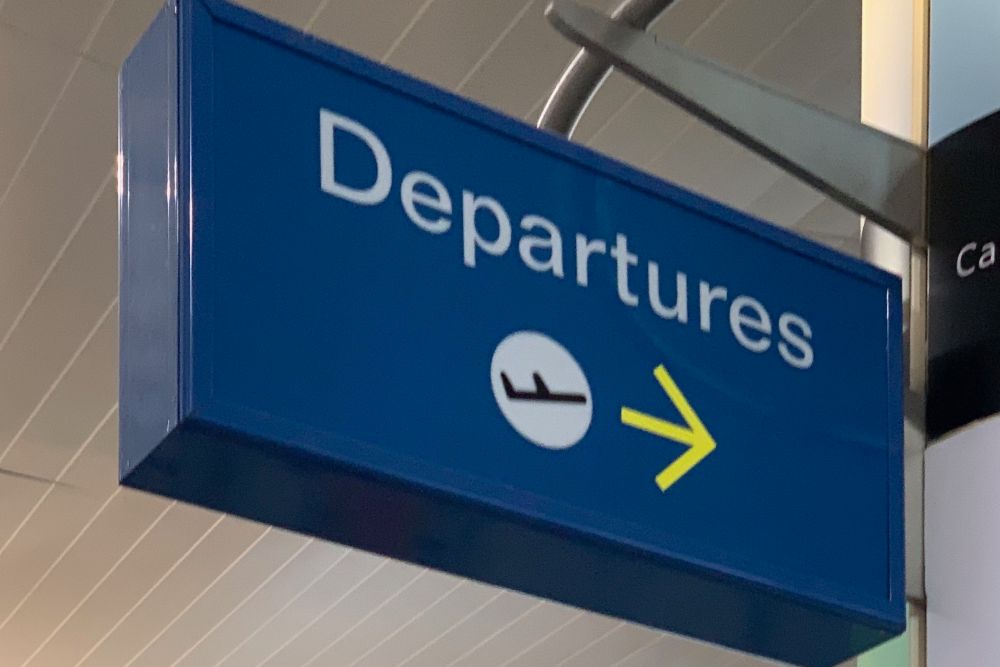
The ban on non-essential travel in and out of the Bailiwick is due to be lifted on 22 March, and the 14 day isolation period for some destinations could be reduced from 30 April.
A date of 1 July or later has been given for when the authorities expect borders to safely reopen with a single test on arrival or pre-travel - depending on public health guidance.
Guernsey's Civil Contingencies Authority has published its so-called 'Bailiwick Blueprint'.
It is a 'provisional timeframe' for moving through the exit from lockdown strategy and removing border and travel restrictions that have been in place in various forms since the coronavirus pandemic began a year ago.
The document gives estimated dates for when all restrictions will be lifted.
* It is proposed Guernsey will move to Stage 3 of exit from lockdown on Monday 22 March, subject to a final decision by the CCA on 16 March.
* Also on 22 March, non-essential travel will be allowed with all people entering the Bailiwick subject to a mandatory 14 days self-isolation with tests on arrival and on day 13 - or 21 says for those who choose not to be tested; hotels may open for guests (subject to the border controls in place) The Bailiwick bubble will be instated.
* The 14 days self-isolation will stay in place until 30 April 2021. Categories will then be reintroduced for regions/countries depending on prevalence of the virus with associated testing and self-isolation on arrival requirements. By this date all priority groups 1-9 in the Bailiwick should have received the first dose of the Covid-19 vaccine.
CCA Chair Deputy Peter Ferbrache, says the dates are subject to change:
"The Bailiwick Blueprint document provides a series of proposed dates upon which the Bailiwick can move towards a new future where this crisis is behind us.
As much as we would like to give absolute certainty at this point, it is impossible to do so as our progression depends upon matters outside of our control.
As such, the Blueprint details various caveats that are necessary to consider before any next phase commences.
That being said, there is a light at the end of the tunnel and we can see a point in time where will be COVID-19 no longer means we need to impose such significant restrictions as a result of the virus."
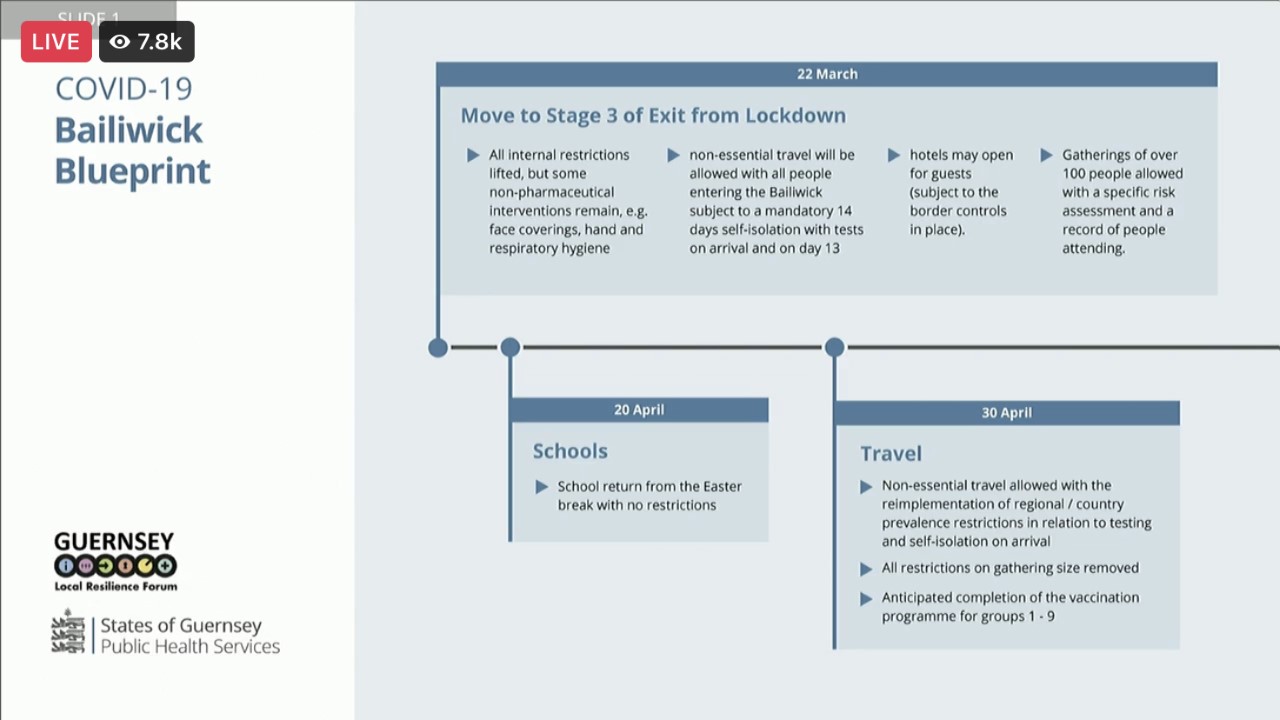
The blueprint also suggests that our schools will return to normal on March 22.
Initially in Stage 3, anyone planning a gathering of more than 100 people will need to do a risk assessment and keep a record of everyone attending. This requirement should be removed by the end of April.
Dr Nicola Brink has urged caution over the dates, and says it won't necessarily be an end to the changed behaviours we have had to get used:
"The Bailiwick Blueprint is based on a reasonable ‘best case scenario’ and might not be achieved if there are any emerging public health concerns such as vaccine resistant variants in neighbouring jurisdictions.
What it does do, however, is answer a number of questions we have received from people asking when and how we move out of the pandemic situation.
The Blueprint also recognises that as we move forward we will need to get used to a new normal. All of the positive messages from the pandemic such as hand hygiene, respiratory etiquette and staying a home if you are unwell must become part of our everyday lives to protect our community from COVID-19 and other viruses."
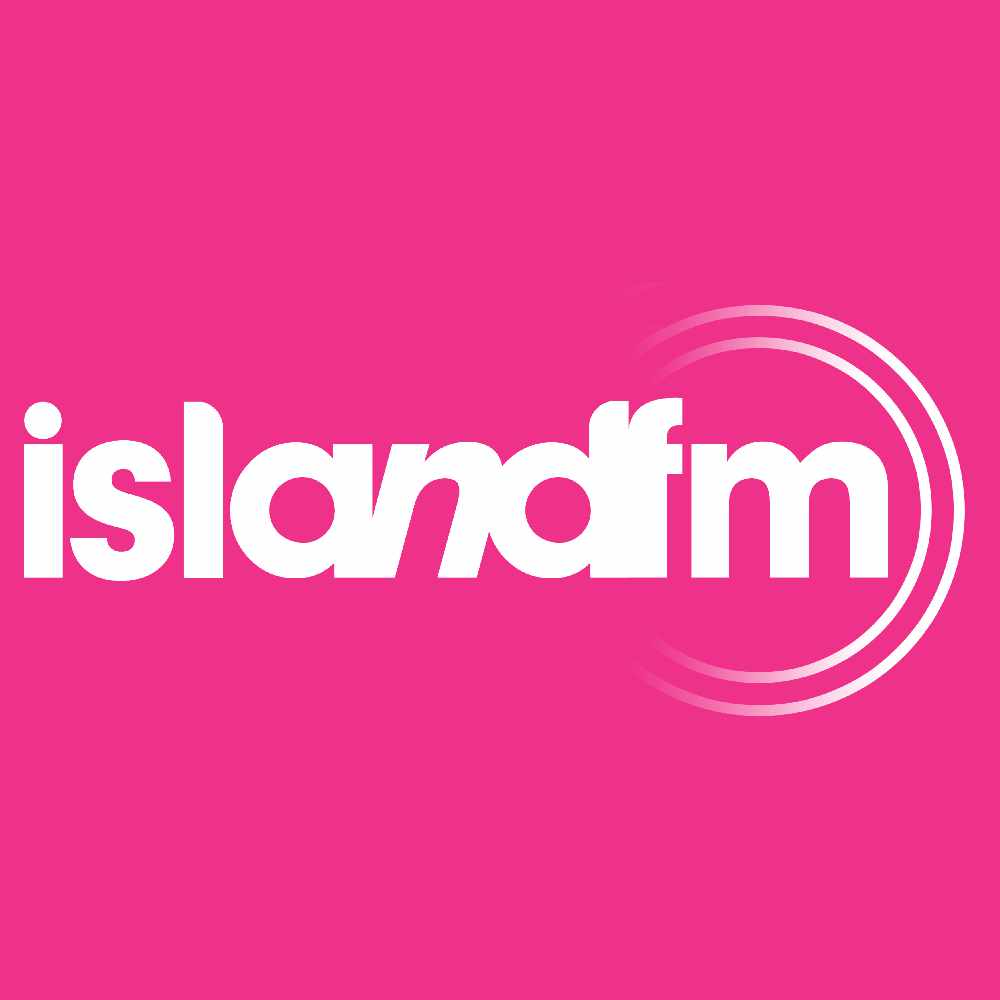

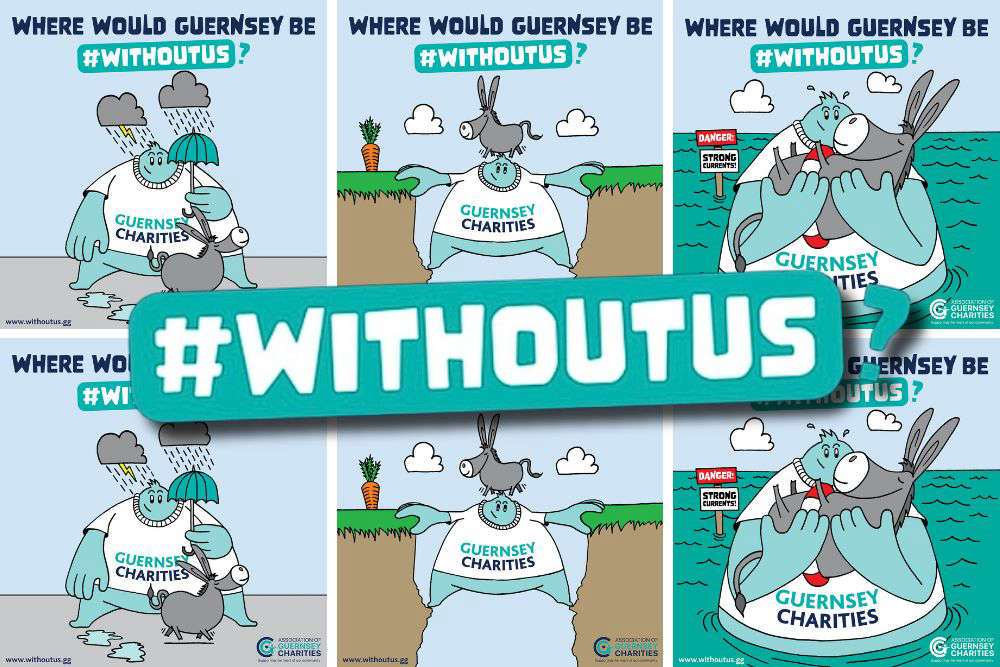 Guernsey charities launch awareness campaign #WithoutUs
Guernsey charities launch awareness campaign #WithoutUs
 Meet 'Angus' who has hitchhiked from the USA to Guernsey
Meet 'Angus' who has hitchhiked from the USA to Guernsey
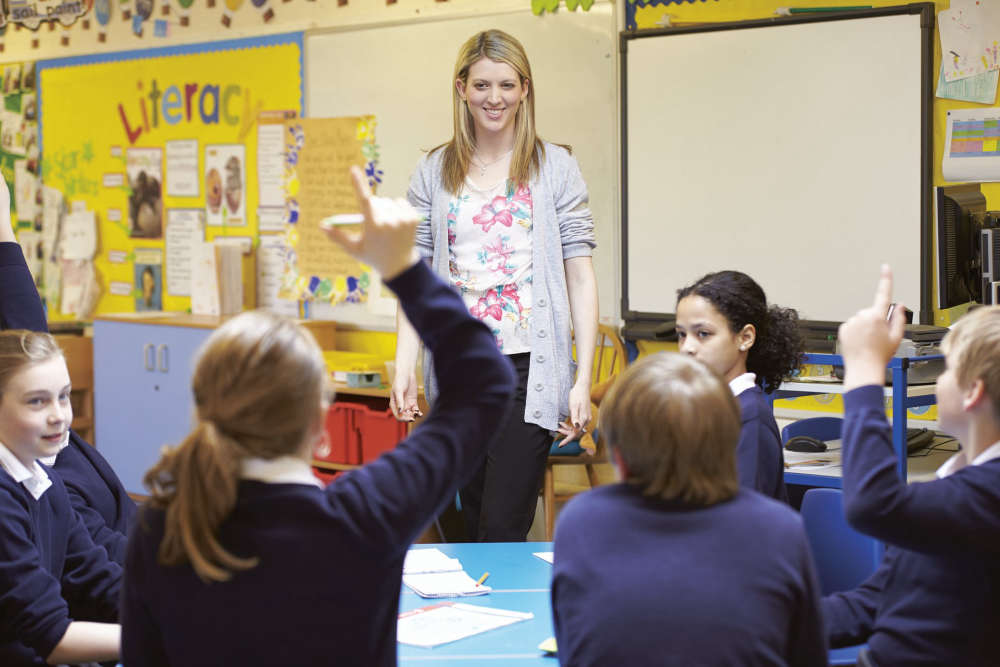 Guernsey primary school hours adjusted
Guernsey primary school hours adjusted
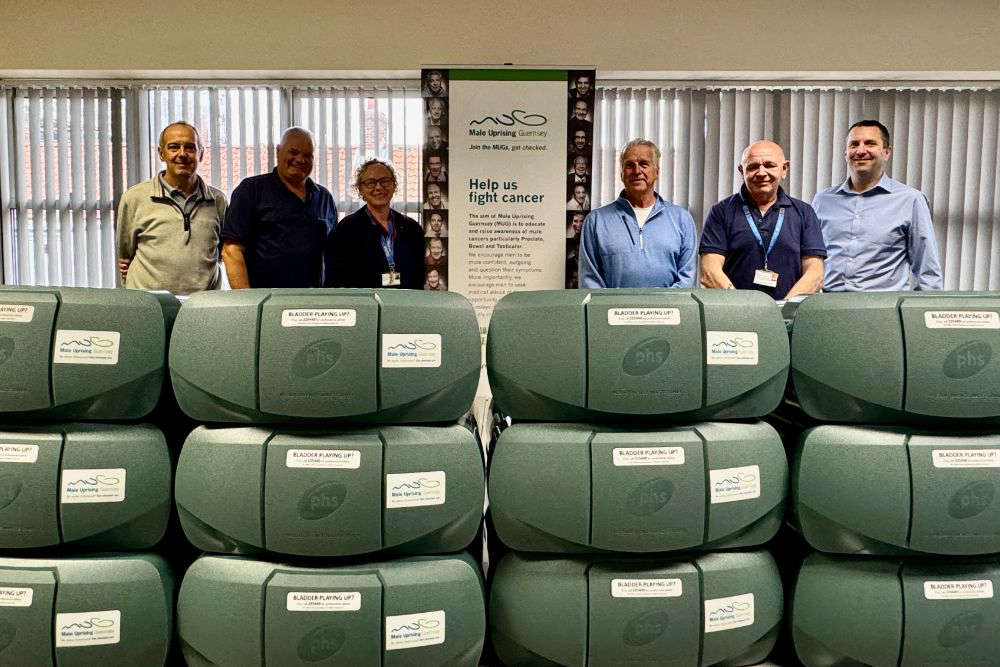 Sanitary bins are being put in men's toilets across Guernsey
Sanitary bins are being put in men's toilets across Guernsey
 Fourth electric bus trial begins in Guernsey
Fourth electric bus trial begins in Guernsey
 WATCH: Barfleur's trial docking in Guernsey a success
WATCH: Barfleur's trial docking in Guernsey a success
 Texas and Tom Grennan to headline Weekender in a new location
Texas and Tom Grennan to headline Weekender in a new location
 Crew of plane that overshot runway had landed in Guernsey many times
Crew of plane that overshot runway had landed in Guernsey many times
